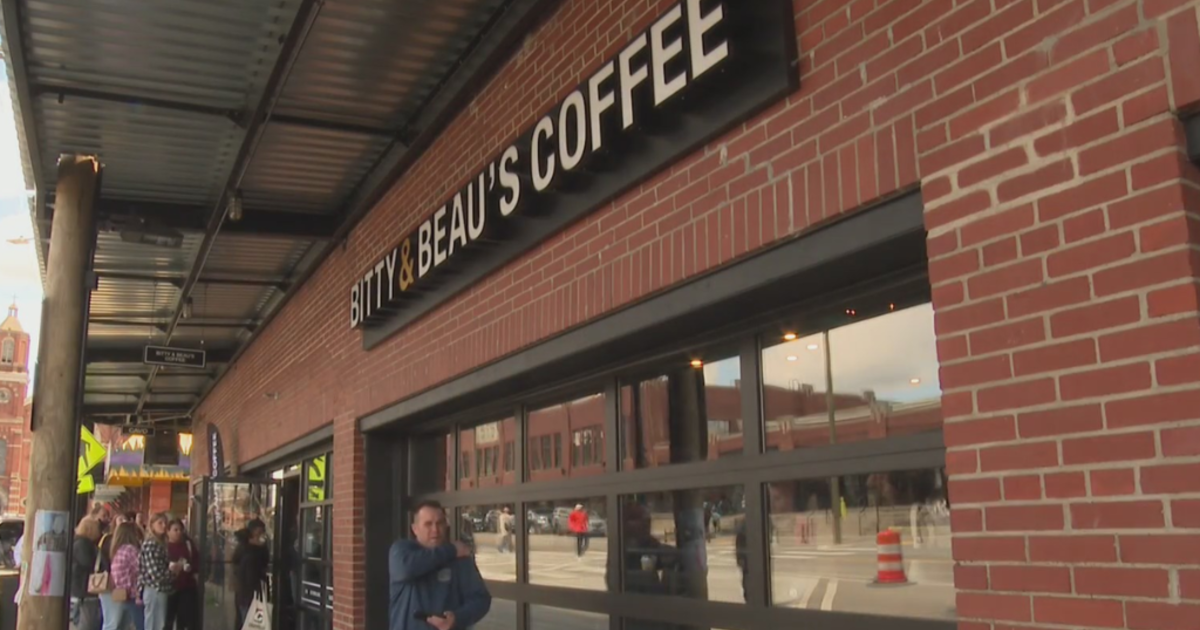Giant Eagle Says Lawsuit Over Its Mask Policy Is 'All Wrong'
PITTSBURGH (KDKA) - Giant Eagle has responded to a federal lawsuit by over thirty individuals who want the grocery store chain to drop its policy of requiring face masks.
The store says its policy protects the public and its front-line employees -- and fully complies with the law. Giant Eagle was one of the first grocery store chains in the nation to require all customers to wear a mask to shop.
Basically, no mask, no service.
Now a number of other grocery chains like Kroger and retail stores like Walmart are doing the same.
But is this legal?
This lawsuit in Pittsburgh may be the first to determine that.
Last month, over thirty area residents sued Giant Eagle. Some just don't like to wear masks, while others claim a medical reason and say the policy violates the Americans with Disabilities Act.
The plaintiffs have asked Federal Judge Nora Barry Fischer for a preliminary injunction to stop the mandatory mask requirement.
The company filed a response saying a lawsuit that names a plaintiff and nearly three dozen consolidated plaintiffs is "all wrong."
Giant Eagle's response points to one of the consolidated plaintiffs in particular and says for him to sue "takes some nerve" and that "his grievances" don't come from the Americans with Disabilities Act but instead a "theory" that face coverings violate constitutional rights.
RELATED STORIES:
- Attorney: Giant Eagle Has Until July 15 To Respond To Face Mask Lawsuit Filing
- Local Attorney Files 30 Complaints Against Giant Eagle's Mask Policy, Saying It Discriminates Against People With Disabilities
- Target, CVS Join Stores Requiring Masks Nationwide
- Giant Eagle Facing Several Lawsuits Over Mask Policy
- Six People Suing Giant Eagle Over Face Mask Policy
- Complaint Filed Against Kennywood, Idlewild And Sandcastle Over Mask Policy
- Gov. Tom Wolf: Masks May Be Mandatory Until There's A Coronavirus Vaccine
- 'Wearing A Mask Shows That You Care About Others': Pa. Secretary Of Health Signs Order Making Masks Mandatory In All Public Spaces
The company's response also cites a comment in a Facebook group called "PA Small Businesses Against Gov Wolf" where the plaintiff says while he's in excellent health except for a herniated disc, "I have a right to refuse wearing a mask." Giant Eagle says neither him nor the other plaintiffs "have that right in a Giant Eagle supermarket during the COVID-19 pandemic."
The company also says the ADA specifically permits legitimate safety requirements.
Giant Eagle says there are other options -- like curbside pickup, home delivery or shopping somewhere else -- and that the "immediate health risks" to other customers, employees and the general public "far outweigh any alleged inconvenience" of wearing a mask.
Because of this, the plaintiff's request for a preliminary injunction should be denied, Giant Eagle argues.
The grocery store says it has tripled its curbside service capabilities, hired "thousands" of extra employees and has increased sanitation and protective measures.
The judge has given the plaintiffs two weeks to respond to Giant Eagle. After that, she could hold a hearing or rule in a case that could be the first of its kind.
The state health department has an FAQ about the universal face covering order issued at the beginning of July. When asked "do businesses need to deny entry to those not wearing a face covering such as a mask?" this is what the state says:
"Yes, however, if a business provides medication, medical supplies, or food, that business must offer another means for the customer to purchase goods if the customer is unable to wear a face covering, such as a mask. Those means could include home delivery or contactless curbside pick-up. Other businesses besides those that provide medication, medical supplies, or food should consider providing services through home delivery or contactless curbside pick-up where possible. The Order does not require a customer to be turned away if the customer fits within an exception to the Order. The Order states that an individual is not required to show documentation that an exception applies.
"If the customer is refused service, and if the business is not able to provide a face covering, the business should consider providing information on mask making, distributing "how to" flyers, or sharing information about where masks can be purchased. If a customer is belligerent or aggressive in refusing to wear a mask or other face covering, there is no expectation that an employee should force a customer to comply or put themselves in a potentially dangerous situation.
"The Department wants to emphasize that it does not expect businesses to put employees in harm's way. Again, in making a determination about whether or not to comply with the Order, an individual should consider not only his or her right to make that decision, but his or her responsibility to family, friends, and other persons with whom they may contact, and to whom they may spread disease."



